Ukraine ceasefire: A fragile peace breaks out in the east
Rebels make a grab for arms abandoned by Ukrainian forces as leaders prepare for talks
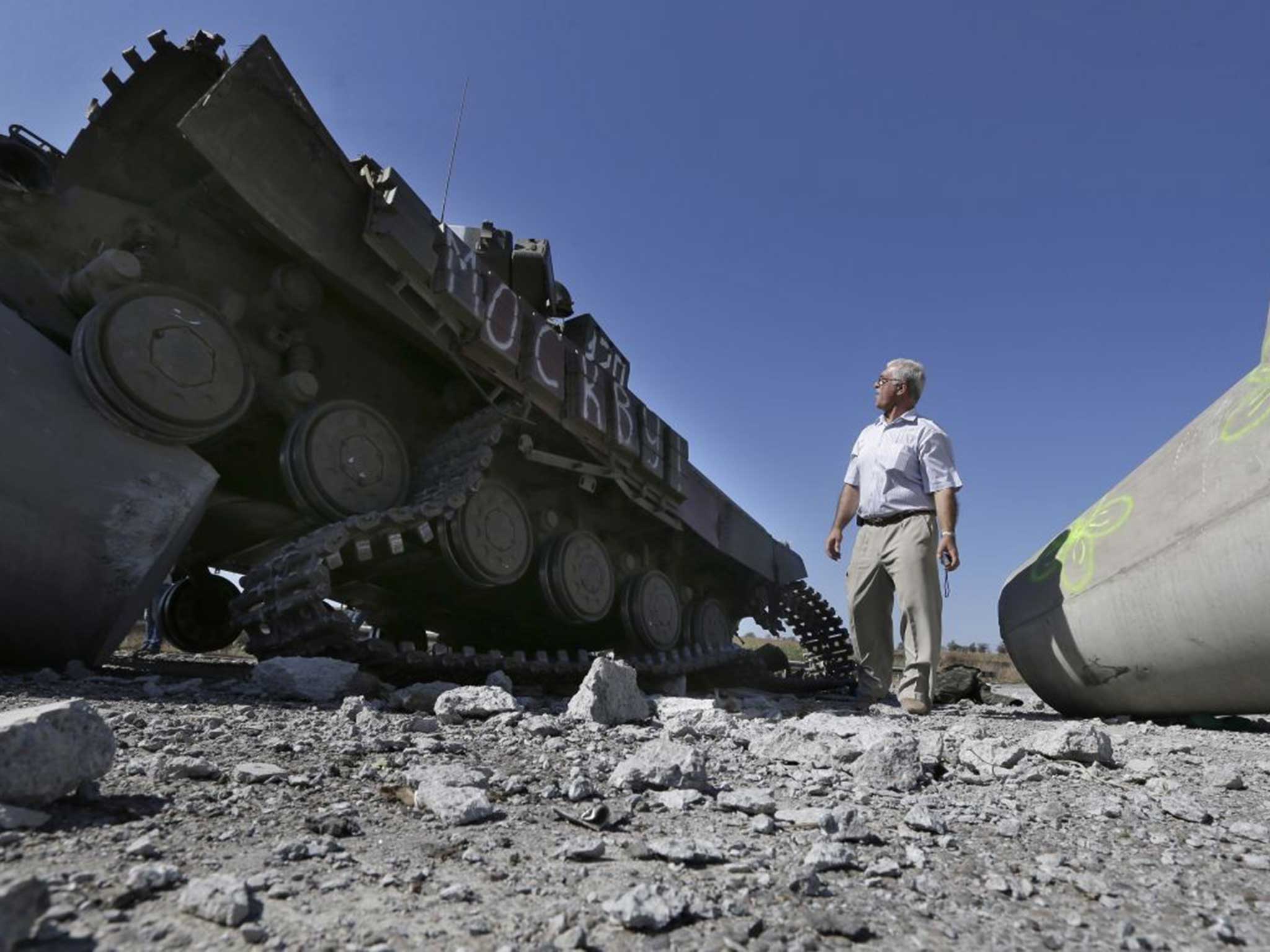
Lyubov Kozhura had almost succeeded in the desperate rush to reach a place of safety with her grandchildren when two artillery shells landed. Six-year-old Karolina was killed instantly; her brother Nikita, nine, was injured by the first blast, but, disabled and confined to a wheelchair, he could not get way before the second round came in.
The little girl and boy were among the last to die before the signing of the truce that could be the first step towards ending the bloodshed in Ukraine's savage civil war, which had cost more than 2,600 lives so far and left a land devastated.
On Saturday, people in the east of the country, battered by six months of fighting, were tentatively tasting the first day of peace. Although the two sides accused the other of breaching the terms of the deal struck 24 hours earlier in the Belarus capital Minsk, Petro Poroshenko, the Ukrainian president, agreed with Vladimir Putin in a telephone call that the ceasefire was largely holding and discussed measures, said Kiev, which need be taken to ensure that it is not derailed.
The agreement came after separatist forces, heavily backed by soldiers and weaponry of the Russian armed forces, won a series of victories, according to Kiev and Western governments. One by-product of that has been caches of arms abandoned by Ukrainian forces.
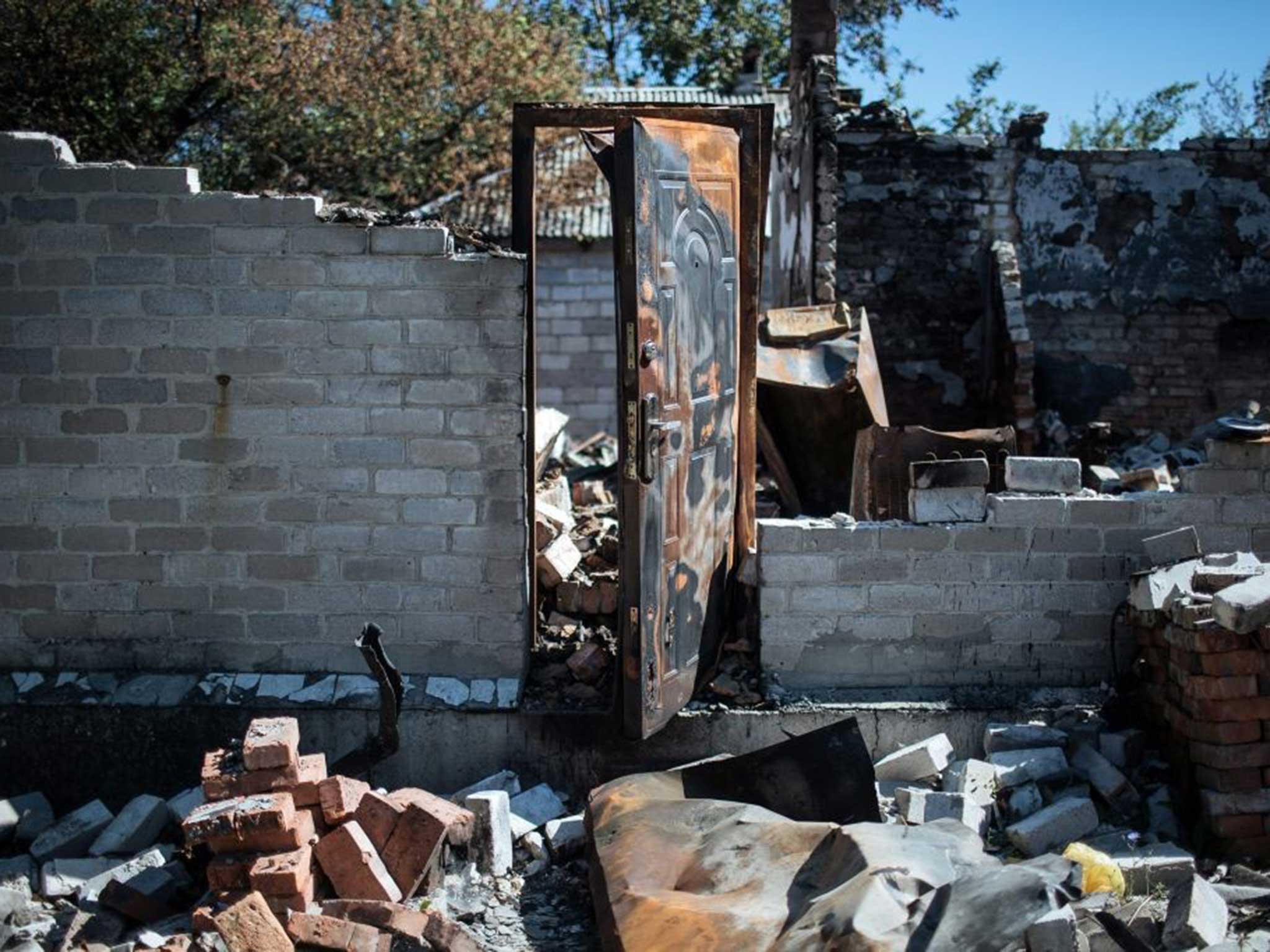
Rocket-propelled grenades and ammunition for Kalashnikov assault rifles were taken away by men in civilian clothes from a children's summer camp, outside Shyrokyne village, which had been used as a base by Kiev. Boxes exposed to looting included more supplies, mortar rounds, land mines and detonators.
Tatiana Bakuna, 29, whose children were killed by those final shells in the next-door village of Lebedinskeya, was wrapped in personal grief over the devastating effect such weapons have had on her family. "I hate this war. It has taken away my babies. I heard they have done something which could stop the killings, but why did they have to keep fighting right until the end? Why did my children have to suffer? What had they done to deserve this?
"Karolina could not be saved, but Nikita could have lived. We called for an ambulance. We tried to call the hospitals, but nothing could get through because of the shelling: my boy bled to death, no one came to help him. My mother was with them; they were hiding inside the house and she tried to take them to another house just down that path which had a shelter. Why did they bomb this village ?"
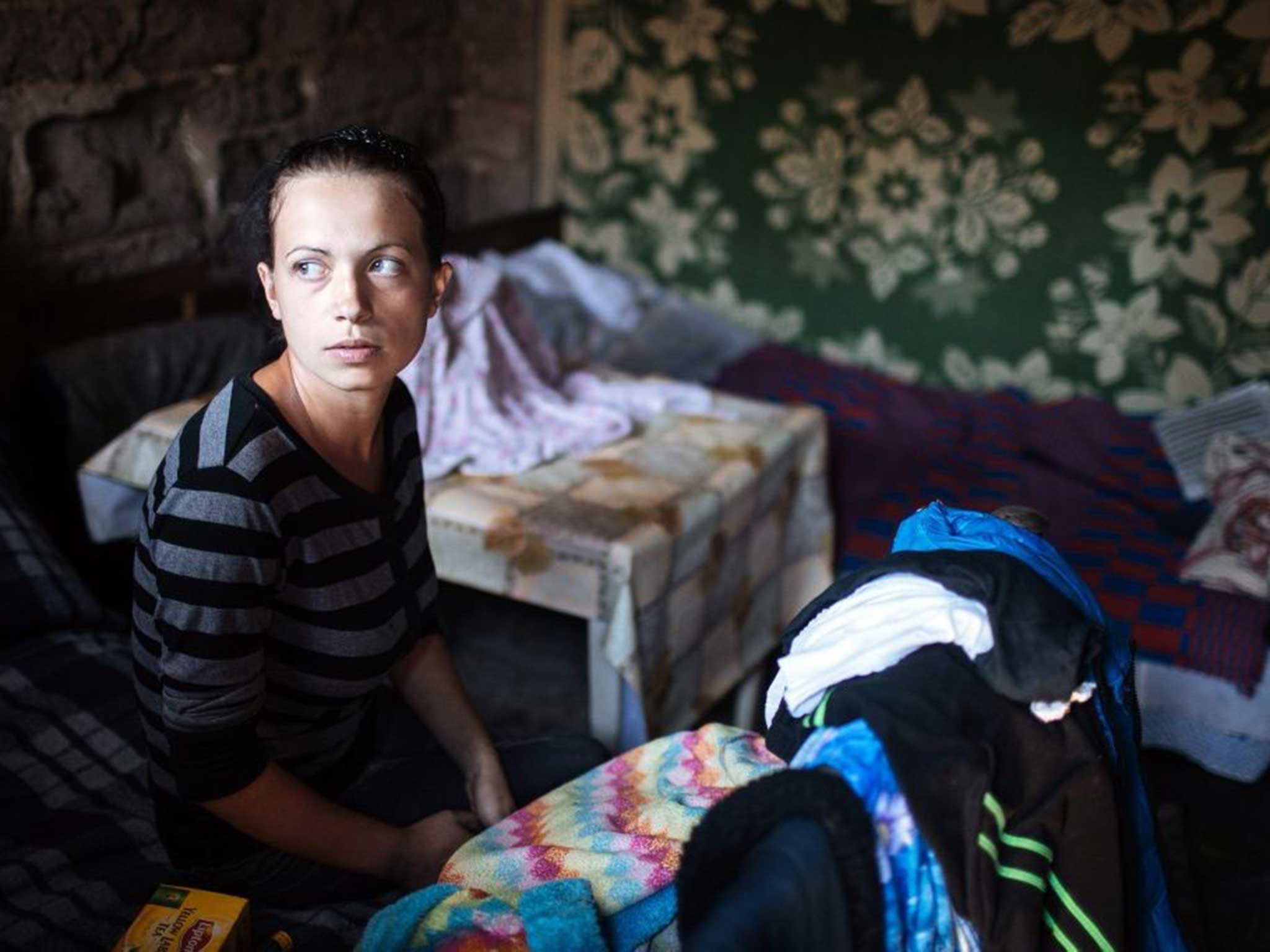
The attack on the village of Lebedinskeya started in the early hours of Friday morning and continued intermittently until the official end of hostilities in the evening. As well as claiming the lives of the two children and severely wounding their grandmother, it killed another villager, Nataliya Boloba, and injured her husband Ivan. Among the buildings damaged was the local school, a mortar round smashing through the windows of a classroom.
"Luckily none of the students and staff were affected because the school has been shut like every other around here, and most of the families with kids have gone away," said the deputy mayor, Vitali Alexyavich. "But this is a small place. We only have 680 residents, and half of them have left, so it is a shock to have the deaths and the destroyed buildings. No one ever thought that we would have to go through this. As you can see there are no soldiers, no checkpoints here."
Mr Alexyavich was uncomfortable when asked about which side had started this firefight. In a conflict where territory has changed hands several times, bringing vengeful retribution, civilians are careful not to take sides publicly. "I am not qualified to say who is to blame: both sides blame each other for so many things," he said.
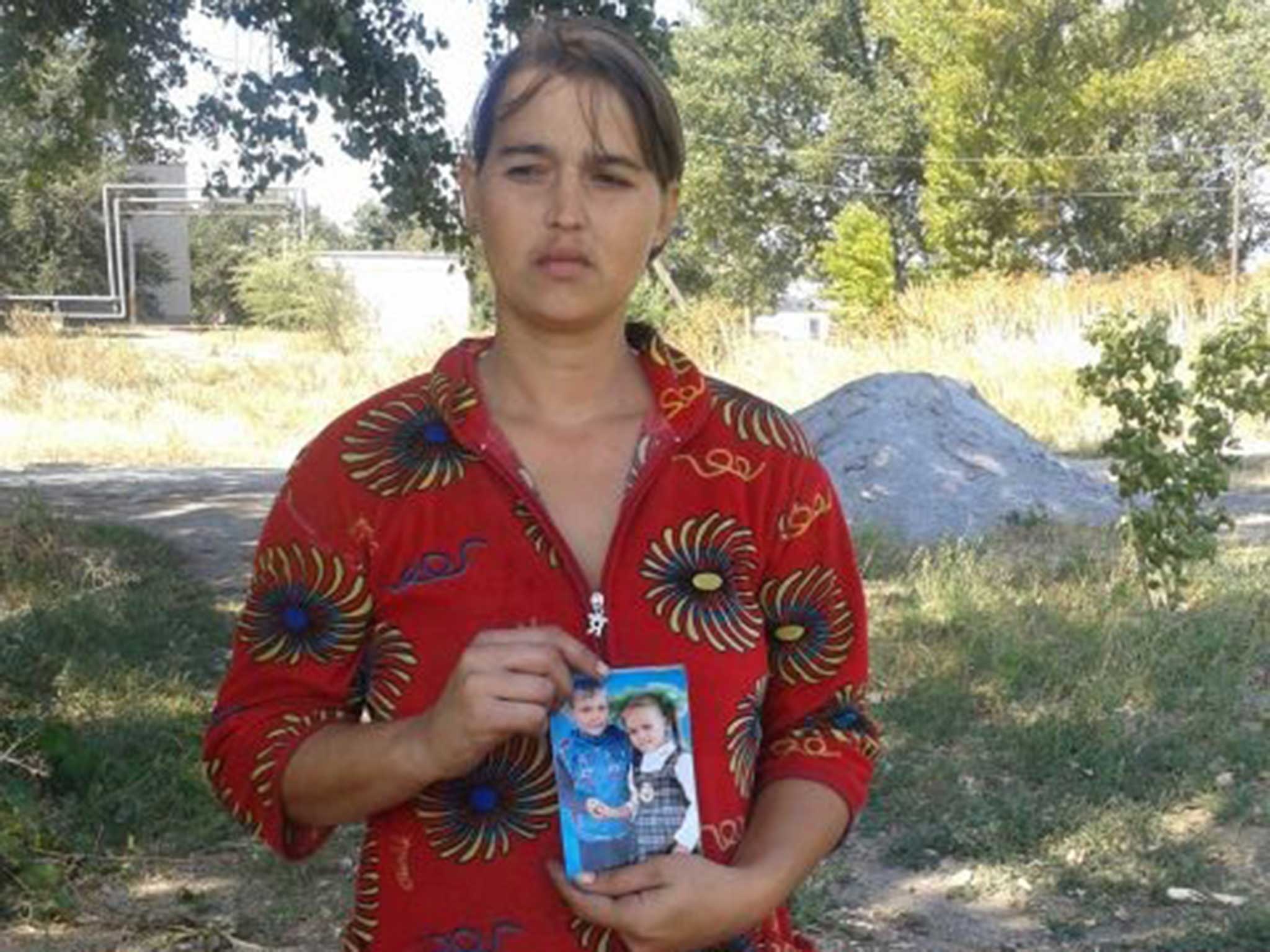
Yesterday the blame game was over violations of the truce. "The ceasefire's terms are not being observed," charged Vladimir Makovich, a leading member of the parliament set up by the self-proclaimed Donetsk People's Republic. Government units, he claimed, had fired from the airport in Donetsk, which they hold, into the city. Ukraine's National Security and Defence Council spokesman Andriy Lysenko reposted that there had been a "series of provocations by the rebels" to engineer a government response which would be used as an excuse to launch attacks.
A team of monitors from the Organisation for Security and Co-operation in Europe who arrived in Lebedinskeya stated that the ceasefire was holding for the time being. They were making their way to a series of sites after prolonged and frustrating negotiations to ensure that heavy weaponry was removed from residential areas.
Some of the Ukrainian heavy armour had been smashed, turned into twisted hulks by precision artillery fire, left on the roads out of Mariupol which had faced repeated attacks from the rebels. An armoured personnel carrier was lying in the grounds of the summer school near Shyrokyne. Beside it lay live rocket-propelled grenades and belts of machine-gun ammunition that disappeared during the afternoon.
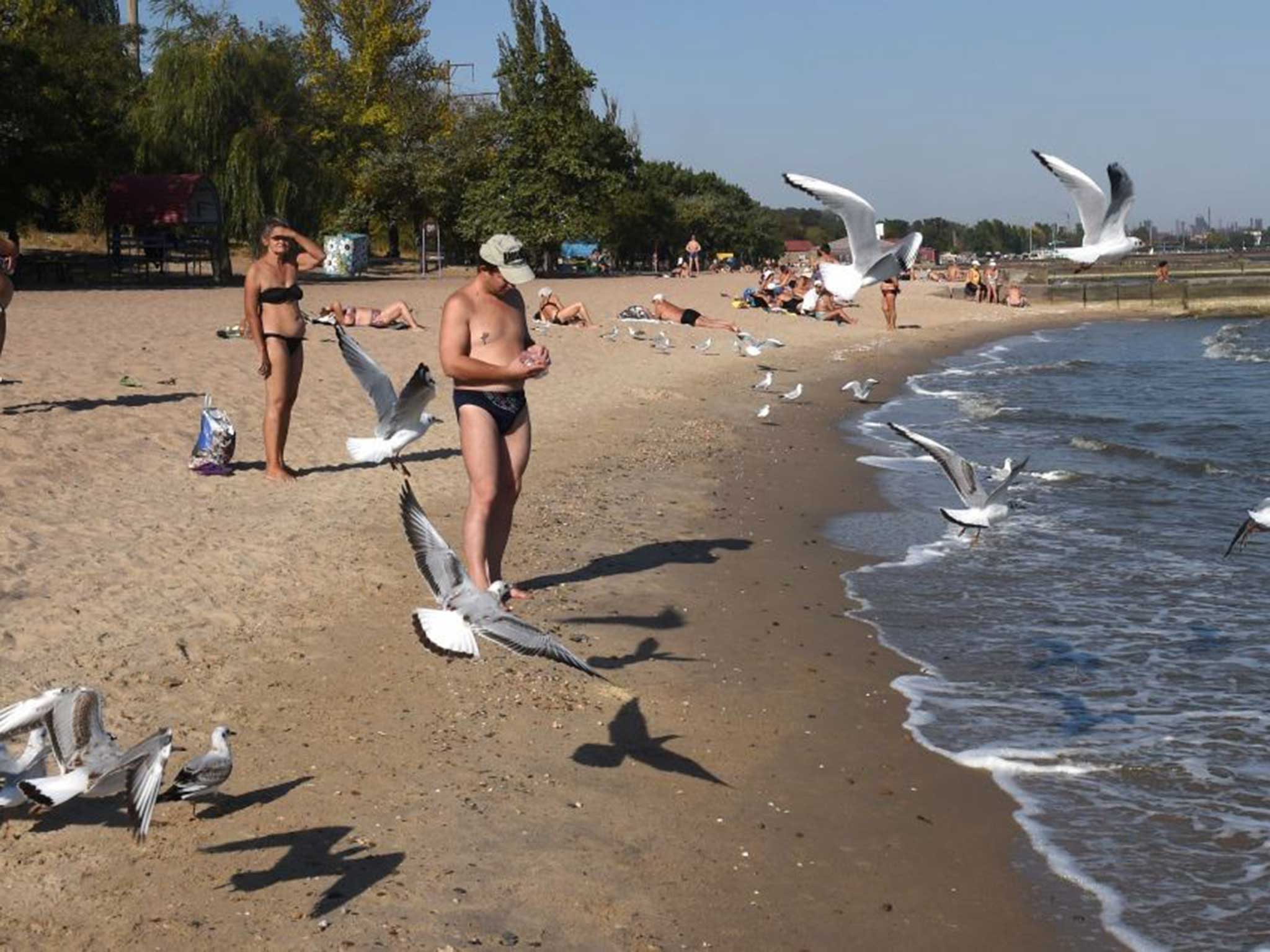
Nadiazhda Voromina, 75, who had been working as a caretaker there since retiring from engineering, gave a conducted tour of the other ordnance left behind: 21 cases of mortar rounds, 11 of anti-tank and six of anti-personnel mines which had been left by Ukrainian soldiers who pulled out after coming under fire on Thursday. "When the bombing started, I hid in a basement with the soldiers, but then they received orders to go and they got away very fast. There are others [arms] around the place; I have been asking the mayor's office to come and collect all this. Surely it's dangerous to leave this lying around, but I don't know whether this area now belongs to Ukraine or the separatists."
Later, a large black Toyota pulled up with three men who were soon in deep discussion about moving some of the boxes of weapons. Who were they? Were they from the Ukrainian government or the "Donetsk Peoples' Republic"?
One of them, large, paunchy, shaven headed, said: "No, we are civilians. We want to take these to a secure place; that is all we need to tell anyone. You don't know, they may be useful if the war starts again."
Join our commenting forum
Join thought-provoking conversations, follow other Independent readers and see their replies
Comments
Bookmark popover
Removed from bookmarks